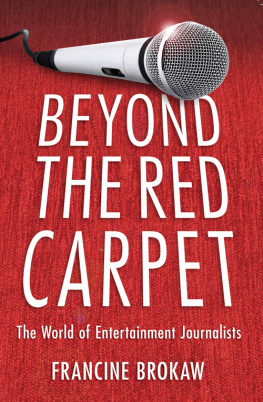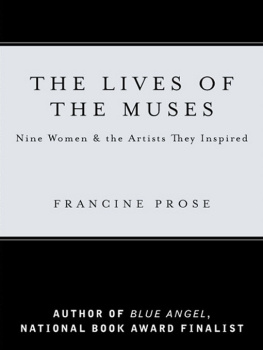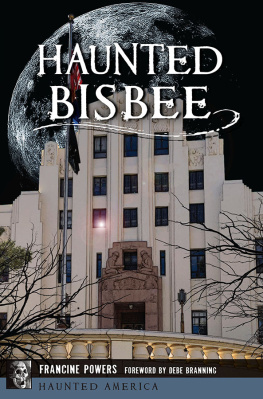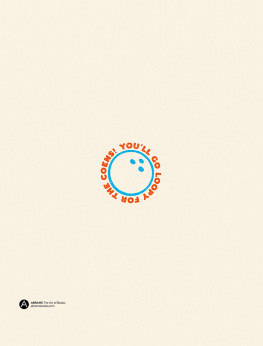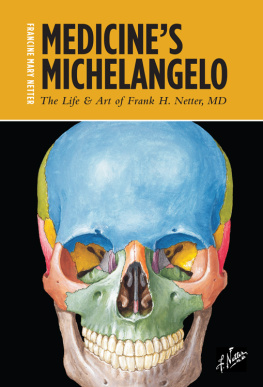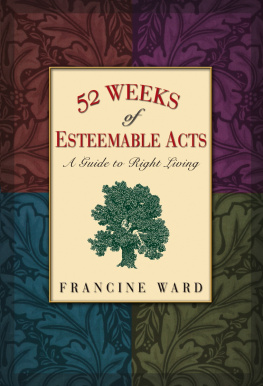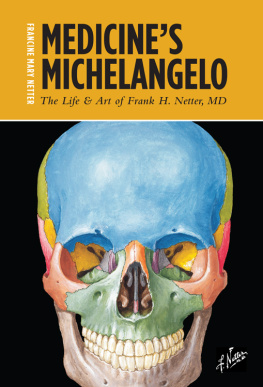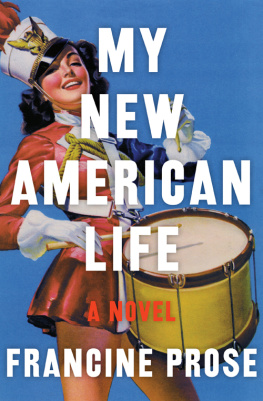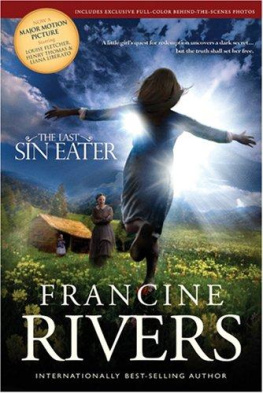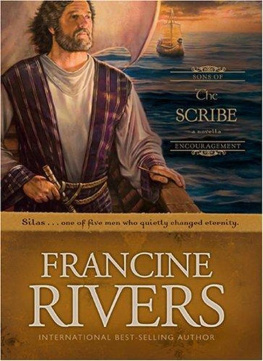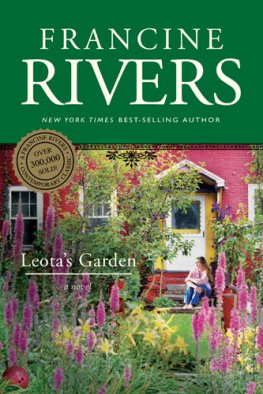W hen people hear that I am an entertainment journalist, they usually imagine a life of glitz and glamour: they envision me going to cocktail parties, decked out in stunning jewelry and designer dresses, and hobnobbing with A-listers over drinks and hors doeuvres. While I do enjoy a good cocktail party from time to time, people usually have a different vision of what I actually do for a living. As Kevin Costner once told a group of us, our friends probably think we lead glamorous lives because we attend Hollywood functions and are always with celebrities. However, just as acting is just a job for him, entertainment journalism is just a job for us. And though we do have some interesting experiences, the job requires a lot of work.
This book is written for people who are interested in the entertainment business and would like to learn more about Hollywood from an insiders perspective. In the following chapters, many of my colleagues from around the country relate their experiences about working in entertainment media. Some write for newspapers, magazines, and websites; others work in television or radio. We all work in the same business, but we have a variety of perspectives about entertainment journalism, specifically, and Hollywood, in general.
While our perspectives differ, there is one thing on which we can basically agree: we love our jobs. So, for anyone interested in what it is like to be on the other side of the entertainment business, read on. We just might surprise you.
1
Beginnings
I never thought about being an entertainment journalist. I wanted to be a political speech writer, to make an impact on the world with words. I was astounded at the power that words had to revolutionize society throughout our history: Give me liberty or give me death; Four-score and seven years ago; Ask not what your country can do for you. Ask what you can do for your country; I have a dream; Some people see things as they are and say, Why? I dream things that never were and say, Why not? Phrases like these marshalled support, called people to action, and literally changed the world. I wanted to be part of it.
As we all know, things dont always go according to plan. For quite a while, I wrote technology articles for MSN. My job consisted of testing new hardware and software, then writing up reviews. Unfortunately, the products didnt always work the first time, and I had to reformat my computera lot. It was tedious, time consuming, and extremely frustrating. Simply put, it was a pain in the neck.
After one particularly long day dealing with technology woes, I started thinking about other possibilities. I decided that since I was living in Los Angeles, the entertainment capital of the world, I would take advantage of it.
I called a local television station and asked to speak with David Sheehan, the entertainment reporter. David was a leader in Los Angeles entertainment broadcasting. As a matter of fact, he was the first television and movie interviewer/reviewer to be a regular on a daily news broadcast. I explained my situation and asked for his guidance. He immediately had his assistant email me a list of studio contacts and gave me a few hints. I started making the calls, and the rest is history.
This job does not come with instructions. We pretty much have to figure it out on the fly. In the beginning, we hang on by the seat of our pants; but, as we become more and more entrenched in the business, we discover our own ways of doing our jobs. Many of my colleagues have backgrounds in film or journalism. Some studied film in school and, because of that, have different perspectives when viewing a movie. I have a background in English and have always enjoyed going to movies and watching TV. So I write from the perspective of a viewer. My reviews do not have descriptions of camera angles or specifics about the special effects; instead, I concentrate on the entertainment experience of the viewer at the movie. After all, dont most people go to movies to be entertained?
To be good at this job, you have to have realistic expectations of celebrities. The first rule of entertainment journalism is not to put actors on pedestals. They are just people doing their jobs, but the difference is that they work in front of an audience. Like everyone, they complain about the hard work their jobs entail. They spend a lot of time waiting for their scenes and reading their scripts. And they have to endure volatile swings of public opinion. But I wonder how many of them would change places with a roofer or a street paver in the middle of summer? To stay grounded, I remind myself that actors and filmmakers are regular people doing their jobs, and they are not more important than anyone else.
For the most part, entertainment journalism is hurry-up-and-wait, combined with five minutes of usable information, added to hours of sitting in traffic, blended together with days of transcribing. When I first began the job, I accepted everyand I mean everyscreening invitation. It was new, after all. My husband and I went to several movies a week. The first couple of awards seasons were brutal. We had to see several films in one day, and, of course, they were in different parts of the city, which meant we spent hours driving in traffic. Then, after seeing the movies, I took the notes that I had written during the films (writing in the dark is not the optimal way to jot down information, by the way), then spent additional hours writing cohesive articles, features, and reviews.
In addition to reviewing movies, books, and other media, entertainment journalists also interview celebrities. The celebrity interview is sometimes similar to the interview scene in Notting Hill (with Julia Roberts and Hugh Grant). Hugh Grants character is mistaken as a journalist in a hotel suite waiting (with many journalists) to interview Julia Roberts. When it is his turn, he is ushered into another room for a face-to-face interview. Sometimes we get a face-to-face interview, but much of the time, we participate in roundtables and press conferences with a few phone calls scattered into the mix.

